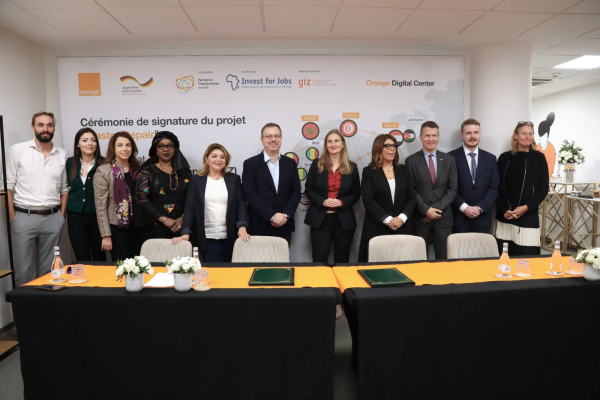The volume of electronic and electrical waste is growing in Africa every year. Successfully giving this waste a second life could help ease current environmental pressures while creating wealth for young people.
On Wednesday, November 13, Orange Middle East and Africa (OMEA) and German development agency GIZ announced the launch of the "Master Repair" project, backed by a joint €2.85 million investment. This initiative offers specialized training in electronic device repair, as well as in the installation and maintenance of solar panels and fiber optic networks. The program targets young men and women in Morocco, Tunisia, Senegal, and Egypt, with a particular focus on individuals with disabilities.
The project is positioned as an inclusive approach to enhancing youth employability and promoting the creation of micro-enterprises in electronic repair and sustainable technology sectors.
Jérôme Hénique, CEO of Orange Middle East and Africa, stated, “This partnership with GIZ illustrates our commitment to supporting young people, especially women and persons with disabilities, towards sustainable professional integration and a more inclusive economic future. Together, we invest in skills that not only create opportunities but also strengthen the foundations of a circular and resilient economy for tomorrow.”
Master Repair is part of the develoPPP program, commissioned by Germany's Federal Ministry for Economic Cooperation and Development (BMZ) and supported by the "Decent Work for a Just Transition" special initiative. The project aligns with the mission of Orange Digital Center to promote digital inclusion and support digital skill development for employment, particularly among youth and women.
According to Market Research Network, the global market for electronic maintenance and repair was valued at $98.1 billion in 2022 and is projected to reach $142.7 billion by 2030, growing at an average annual rate of 4.5% between 2024 and 2030. While specific data on Africa is unavailable, it’s evident that this market holds promise. With the World Bank reporting that a majority of Africans live on less than $5 a day, purchasing new devices often requires significant financial sacrifice, making repair a more affordable option than replacement.
Increasing the number of young people skilled in repair and maintenance is also expected to better meet the needs of households and businesses across the region.



















